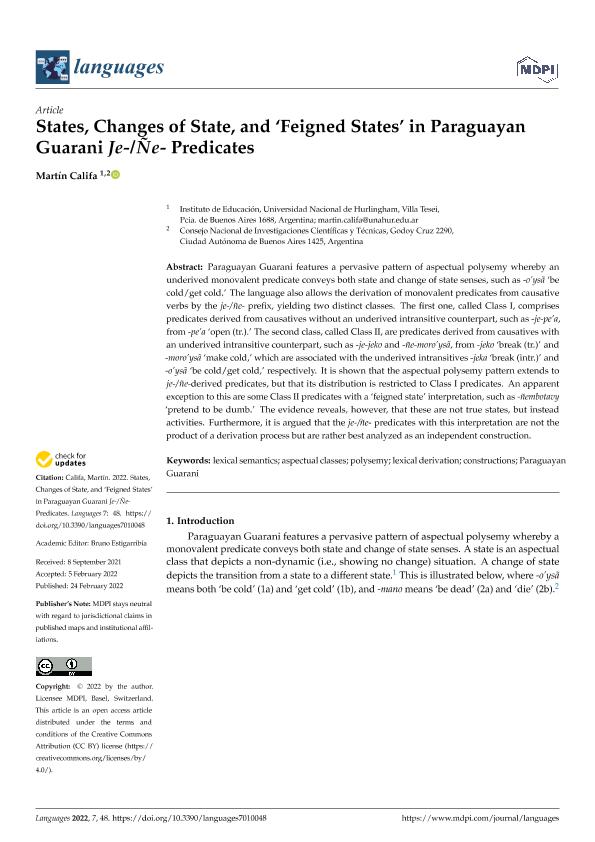Artículo
States, Changes of State, and ‘Feigned States’ in Paraguayan Guarani Je-/Ñe-Predicates
Fecha de publicación:
03/2022
Editorial:
MDPI
Revista:
Languages
ISSN:
2226-471X
Idioma:
Inglés
Tipo de recurso:
Artículo publicado
Clasificación temática:
Resumen
Paraguayan Guarani features a pervasive pattern of aspectual polysemy whereby an underived monovalent predicate conveys both state and change of state senses, such as-o’ysã ‘be cold/get cold.’ The language also allows the derivation of monovalent predicates from causative verbs by the je-/ñe-prefix, yielding two distinct classes. The first one, called Class I, comprises predicates derived from causatives without an underived intransitive counterpart, such as-je-pe’a, from-pe’a ‘open (tr.).’ The second class, called Class II, are predicates derived from causatives with an underived intransitive counterpart, such as-je-jeko and-ñe-moro’ysã, from-jeko ‘break (tr.)’ and-moro’ysã ‘make cold,’ which are associated with the underived intransitives-jeka ‘break (intr.)’ and-o’ysã ‘be cold/get cold,’ respectively. It is shown that the aspectual polysemy pattern extends to je-/ñe-derived predicates, but that its distribution is restricted to Class I predicates. An apparent exception to this are some Class II predicates with a ‘feigned state’ interpretation, such as-ñembotavy ‘pretend to be dumb.’ The evidence reveals, however, that these are not true states, but instead activities. Furthermore, it is argued that the je-/ñe-predicates with this interpretation are not the product of a derivation process but are rather best analyzed as an independent construction.
Archivos asociados
Licencia
Identificadores
Colecciones
Articulos(SEDE CENTRAL)
Articulos de SEDE CENTRAL
Articulos de SEDE CENTRAL
Citación
Califa, Martín Iván; States, Changes of State, and ‘Feigned States’ in Paraguayan Guarani Je-/Ñe-Predicates; MDPI; Languages; 7; 1; 3-2022; 1-22
Compartir
Altmétricas




